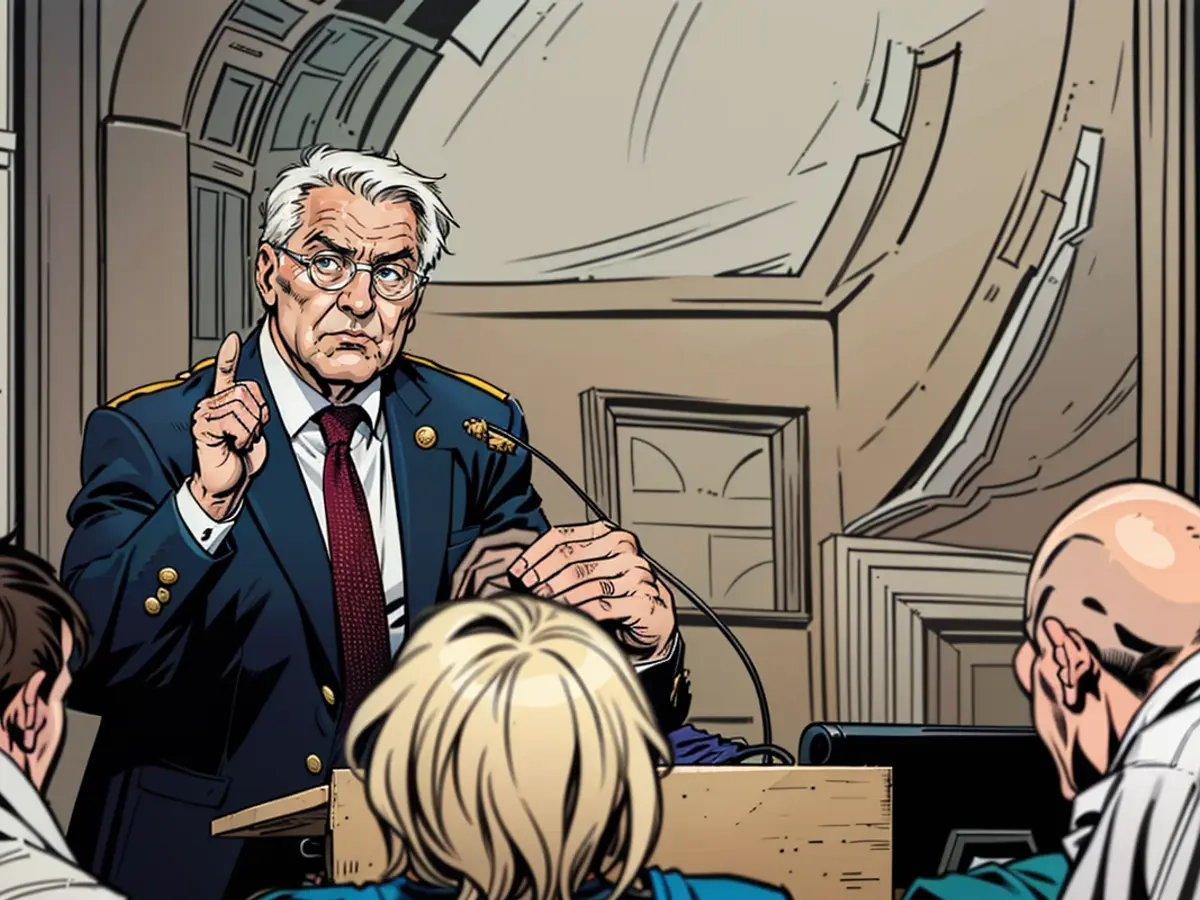Steinmeier views Garrison Church as a prospect for strengthening democracy
The restoration of the Garrison Church, which experienced both arson and demolition during World War II, remains a controversial subject. Situated at the heart of Potsdam, this historical site carries a significant weight. In the eyes of German President Frank-Walter Steinmeier, the completed tower symbolizes a collective duty for our society.
Addressing the audience during the grand opening, Steinmeier emphasized the importance of the site becoming a beacon of democracy. "Together, let's transform this place, which has been away from its democratic essence for extended periods, into a democratic bastion," Steinmeier stated. "This is our historical obligation, and it is a shared responsibility for our society."
On March 21, 1933, the first Reichstag session after the Nazi regime's rise to power took place within the church walls in Potsdam, marking a 'Day of Potsdam.' During this event, the newly appointed Reich Chancellor Adolf Hitler shared a handshake with Reich President Paul von Hindenburg in front of the church.
The endeavor to rebuild the church has sparked controversy among several groups for various reasons. Steinmeier views the tower as an important reminder to commemorate, differentiate, yet not forget. "We vehemently denounce any attempt to downplay German accountability or disparage our culture of remembrance as a guilty cult," Steinmeier asserted. "We stand firm against such attempts – we do." The rebuilding project, which Steinmeier is the patron of, has been a contentious topic.
Opposition to Rebuilding
More than 100 members from the citizens' initiative "Potsdam without the Garrison Church" protested against the construction, viewing the church as a symbol of terror and militarism. A banner at the rally read: "Nazi Church: Against the Will of Citizens." The "Learning Site Garrison Church" of the Christian Martin Niemöller Foundation also shares this opposition.
The Protestant Church aims to establish the new building as a sanctuary for peace work and democratic education. An upcoming exhibition titled "Faith, Power, and Military" will scrutinize the church's history critically.
The military church, which dates back to 1735, was destroyed during World War II and was later demolished upon order from the DDR leadership in 1968. Construction on the new tower commenced in 2017, striving to maintain the original appearance. The concept for the project can be traced back almost 20 years. The estimated cost of building the tower was around 42 million euros, with most funding coming from the federal government. There are no intentions to reconstruct the church nave.
The tower will be accessible to the public from Friday, with the viewing platform at 57 meters anticipated to attract visitors. The construction, however, is not yet complete. A 30-meter high dome is scheduled to be added in 2026, making the tower the tallest building in Potsdam at 90 meters.
Despite the controversy surrounding the rebuilding of the Garrison Church, German President Frank-Walter Steinmeier sees it as an opportunity for commemoration and reconciliation. He believes that the completed tower can serve as a reminder of Germany's past and a chance to promote democratic values.
During the construction process, several groups, including the "Potsdam without the Garrison Church" initiative, have voiced their opposition to the project, viewing the church as a symbol of terror and militarism.
[End of generated text]








